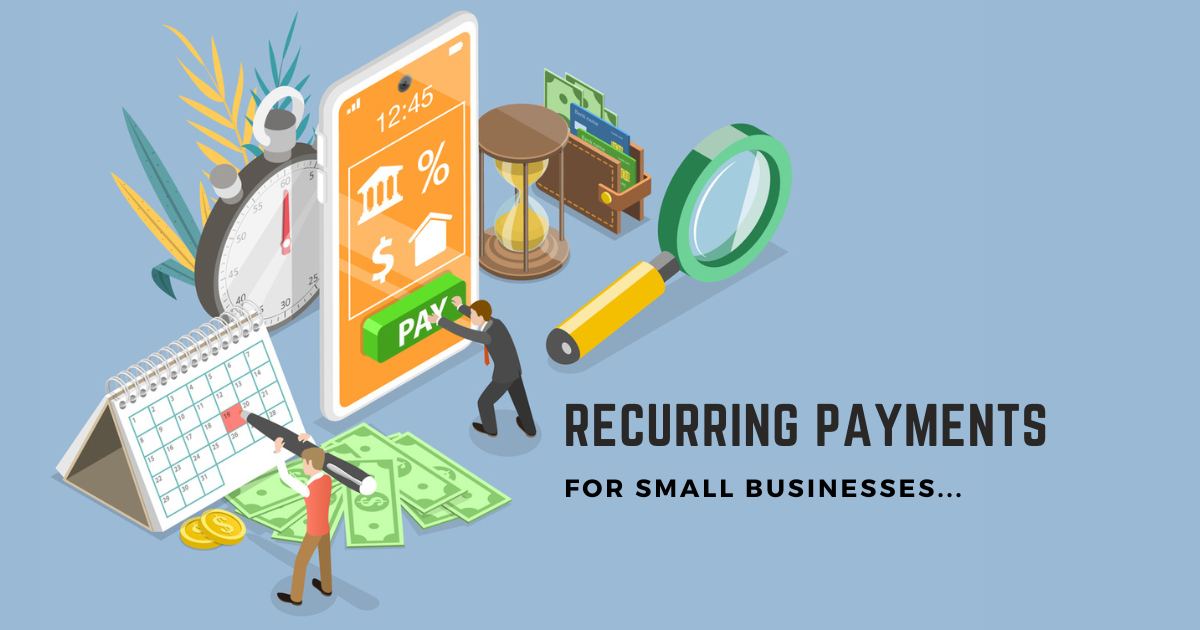
| December 12th, 2023 |
Mastering Growth — The Power of Recurring Payments for Small Businesses!
In the dynamic landscape of small businesses, maintaining a steady cash flow is paramount for sustained success. One of the game-changing strategies that entrepreneurs are increasingly embracing is the implementation of recurring payments. In this comprehensive blog, we’ll delve into the intricacies of recurring payments for small businesses, exploring the benefits, challenges, and strategies that can propel your venture to new heights.
The Foundation — Understanding Recurring Payments:
At its core, recurring payments refer to the automatic, scheduled collection of payments from customers regularly. This model has gained immense popularity across various industries due to its ability to provide a predictable revenue stream and enhance customer retention. Small businesses, in particular, stand to gain significantly from incorporating recurring payments into their financial strategy.
The Benefits of Recurring Payments for Small Businesses —
Steady Cash Flow:
Recurring payments ensure a steady and predictable cash flow, allowing small businesses to better plan and manage their finances. This stability is crucial for meeting operational expenses and seizing growth opportunities.
Improved Customer Retention:
By offering subscription-based services or products, small businesses can foster long-term relationships with customers. The convenience of recurring payments encourages customer loyalty, reducing the need for constant customer acquisition efforts.
Time and Resource Efficiency:
Automating payment processes saves valuable time and resources. Small business owners can redirect their focus towards enhancing product or service quality, expanding their offerings, or developing marketing strategies.
Enhanced Financial Planning:
Predictable revenue streams enable better financial planning. Small businesses can allocate resources strategically, invest in growth initiatives, and navigate economic uncertainties more effectively.
Implementing Recurring Payments — Strategies for Success:
Choose the Right Payment System:
Select a payment gateway that aligns with your business model and caters to recurring payments. Popular choices include Stripe, PayPal, and Square, Paycron which offer user-friendly interfaces and robust subscription management features.
Transparent Pricing and Policies:
Communicate pricing structures and billing frequencies to customers. Transparency builds trust and reduces the likelihood of misunderstandings, leading to improved customer satisfaction.
Incentivize Subscription Commitments:
Encourage customers to opt for recurring payments by offering discounts, exclusive access, or additional perks. Incentives can sway purchasing decisions and contribute to the overall success of your subscription model.
Seamless Onboarding Processes:
Simplify the subscription sign-up process to minimize friction for customers. An intuitive and user-friendly onboarding experience increases the likelihood of successful conversions and reduces churn rates.
Customer Engagement Strategies:
Stay connected with your subscribers through regular communication. Provide updates, exclusive content, or personalized offers to maintain engagement and reinforce the value of your products or services.
Overcoming Challenges in Recurring Payments —
While the benefits of recurring payments for small businesses are substantial, challenges do exist. Addressing these issues proactively is key to ensuring the sustained success of your subscription model.
Payment Security Concerns:
Instill confidence in your customers by implementing robust security measures. Choose payment gateways with advanced security features and adhere to industry standards to protect sensitive financial information.
Churn Management:
Churn, or the loss of subscribers, is an inevitable challenge. Implement strategies to identify and address the reasons for churn, such as offering exit surveys, analyzing customer feedback, and continuously improving your offerings.
Regulatory Compliance:
Stay informed about the legal and regulatory landscape surrounding recurring payments. Ensure compliance with data protection laws, consumer rights, and other relevant regulations to avoid legal complications.
Payment Failures and Declines:
Minimize payment failures by implementing effective communication channels to alert customers about upcoming charges. Provide easily accessible customer support to address payment-related issues promptly.
Leveraging Technology for Recurring Payment Success —
Subscription Management Tools:
Invest in subscription management tools that streamline billing processes, automate subscription renewals, and provide insightful analytics. These tools can significantly reduce administrative burdens and enhance operational efficiency.
Analytics and Reporting:
Utilize analytics tools to gain valuable insights into customer behavior, subscription performance, and revenue trends. Informed decision-making based on data analysis can help optimize pricing strategies and improve overall business performance.
Mobile Optimization:
With the increasing prevalence of mobile transactions, ensure that your payment processes are optimized for mobile devices. A seamless mobile experience contributes to higher conversion rates and customer satisfaction.
Conclusion — Elevating Your Small Business with Recurring Payments:
In conclusion, recurring payments represent a powerful tool for small businesses seeking sustained growth and success. By embracing the subscription model, entrepreneurs can enjoy a myriad of benefits, including steady cash flow, improved customer retention, and enhanced operational efficiency.
To thrive in the competitive business landscape, small business owners must carefully strategize their approach to recurring payments. From choosing the right payment system to addressing challenges proactively and leveraging technology, each step plays a crucial role in the overall success of the subscription model.
In the ever-evolving world of commerce, adapting to changing consumer preferences and technological advancements is essential. Recurring payments provide a flexible and scalable solution, empowering small businesses to not only survive but thrive in the long run. By mastering the art of recurring payments, entrepreneurs can unlock a new era of growth and prosperity for their ventures.